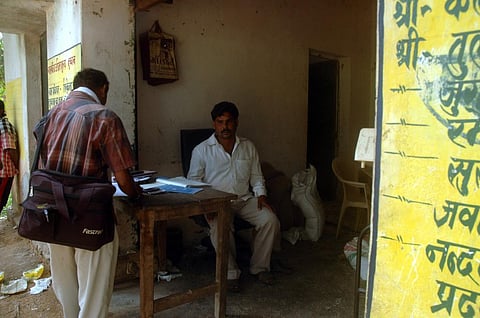

More than 90 million eligible people have been excluded from legal entitlements under the Targeted Public Distribution System (TDPS), India’s tool to combat food insecurity, claimed a new report.
The report, Promises and Reality, released May 26 — marking the third anniversary of the second Narendra Modi government — based its calculations in population projections for 2021.
“The Census of India 2011 remains the source of data for arriving at the number of people to be covered by the scheme. As a consequence, subsequent years have seen the exclusion of a large chunk of the population. This in-built fallacy in the legal framework led to exclusion of at least 12 per cent of population from the legal entitlements in the most legitimised way,” the report claimed.
The Union government is yet to start the Census process that was supposed to be over last year.
The citizen’s report published by Wada Na Todo Abhiyan (WNTA) — that loosely translates to Keep the Promise Campaign — read:
“Targetism, as the basis for provision of entitlements under TPDS, has always dampened the potential impact of the scheme. Despite being one of the most important schemes for addressing food insecurity in the country, complications pertaining to identification of beneficiaries continue to affect the efficacy of the whole scheme.”
WNTA, started in 2005 by civil society organisations, tracks delivery by governments on promises and commitments.
Most states have adopted both inclusion and exclusion criteria to identify priority households for TPDS under the National Food Security Act, 2013. Yet many do not automatically pass on TDPS benefits single women, socially vulnerable groups, transgenders, persons with disabilities and those chronically.
States like Rajasthan, Sikkim, West Bengal and Uttar Pradesh did not include any of these population groups in their respective automatic inclusion criteria. Most of the states did not include SCs and STs automatically, the report said.
The National Human Rights Commission in May 2021 issued notices to the Centre, states and Union territories to ensure that nobodu eligible was deprived of the Pradhan Mantri Garib Kalyan Yojana —meant to provide free foodgrains to poor households during the COVID-19 pandemic — is deprived of the Right to Food due to problems regarding biometric authentication.
The WNTA report quoted a recent study by Dalberg Advisors and Kantar Public, with technical support from NITI Aayog, which found some three million children have grown weaker since the pandemic.
Findings from the Fifth round of National Family Health Survey also revealed that 89 per cent of children between the formative ages of 6-23 months do not receive a “minimum acceptable diet’’.
Also, increasing number of people across all population groups, including children below five years, adolescent girls and boys, and pregnant women, is being affected by anaemia. At least 67 per cent children (6-59 months) have anaemia as compared to 58.6 per cent in the last survey conducted in 2015-16. Among adults, 57 per cent of women and 25 percent of men (in the 15-49 group) have anaemia. Among women, its prevalence has increased from 53 percent in 2015-16 to 57 per cent in 2019-21. In men, it has increased from 23 per cent to 25 per cent.
The Promises and Reality report also goes on to highlight that most of the state food commissions suffer financial autonomy and the state governments have not gone beyond designating District Grievance Redressal Officers (DGRO) and forming vigilance committees.
“Till date, none of the state governments have taken any initiatives to conduct training for the members of vigilance committees, or any other agency / authorities in the law,” it said.